

China Daily reporter Ian Goodrum made a return trip to Wuzhen, the venue for the annual World Internet Conference, four years after his arrival in China.
What's new in Wuzhen? How has China's internet technology developed in that time, and what sort of improvements can technology bring to our everyday lives? Check it out in this exclusive roundup!

China's emerging social e-commerce is playing an increasingly important role in driving digital economic growth, a business executive said during the World Internet Conference Wuzhen Summit.
Deng Zhengping, CEO of Chinese social e-commerce platform Fenxiang, said social e-commerce has become a key part of the booming digital economy, which will help spur consumption upgrades, boost innovation and promote high-quality economic growth.

China's accelerated push for the industrial internet is set to further promote the digital transformation and upgrading of traditional industries, injecting new impetus into the country's high-quality growth, officials and top business executives said.
"China's industrial internet has entered the fast lane, extending into 40 major sectors in the national economy," said Sheng Ronghua, deputy head of the Cyberspace Administration of China. "The industrial internet has played a key role in (supporting the development) of new infrastructure, providing strong driving force for China's high-quality development."

Experts and business executives attending the 2021 World Internet Conference Wuzhen Summit warned of increasing cybersecurity risks which would come along with the booming digital economy in China, requiring vigilant regulators and public-private efforts to maintain a reliable and safe cyberspace.
"Today people are able to enjoy the convenience brought by emerging technologies such as artificial intelligence, and the country has seen rising new businesses such as unmanned stores, smart speakers and sweeping robots," said Zhou Min, deputy director of the State Information Center. "Such a wide range of digital applications will provide new impetus to high-quality socioeconomic development."
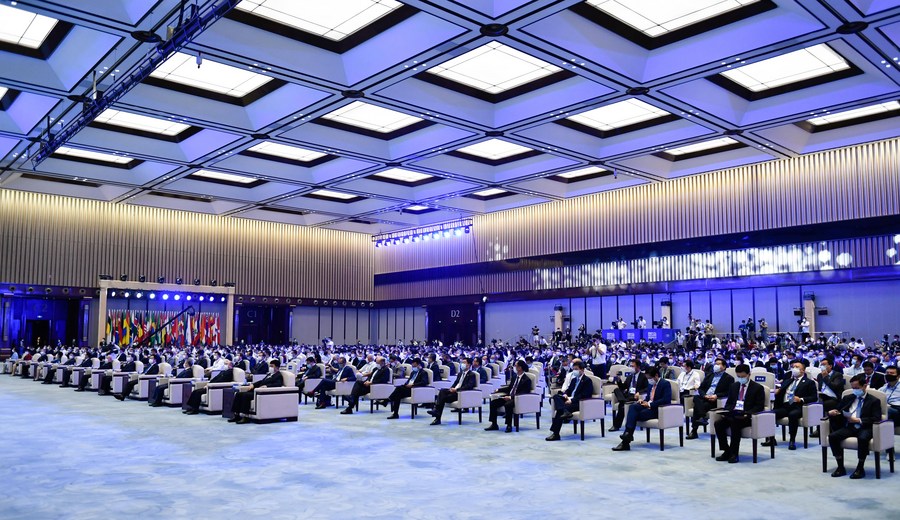
HANGZHOU -- A total of 14 world-leading internet scientific and technological achievements were unveiled Sunday in East China's Zhejiang province.
The building and applications of the BeiDou Navigation Satellite System and the HarmonyOS, the operating system for the smartphones of Chinese telecom giant Huawei, were among the released items recommended by a panel composed of nearly 40 internet experts from home and abroad.
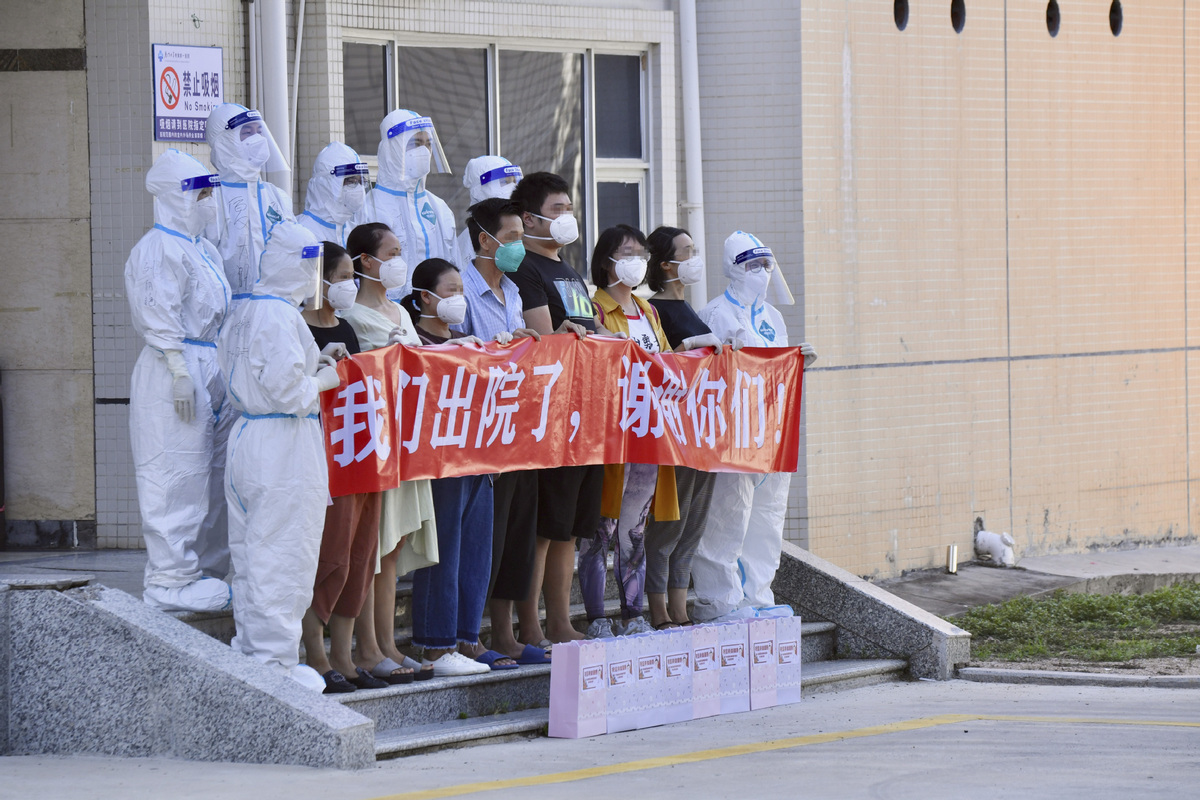
China's success in COVID-19 pandemic prevention and control is a great story to tell to build and safeguard a shared future for mankind, participants in the 2021 World Internet Conference Wuzhen Summit said on Sunday.
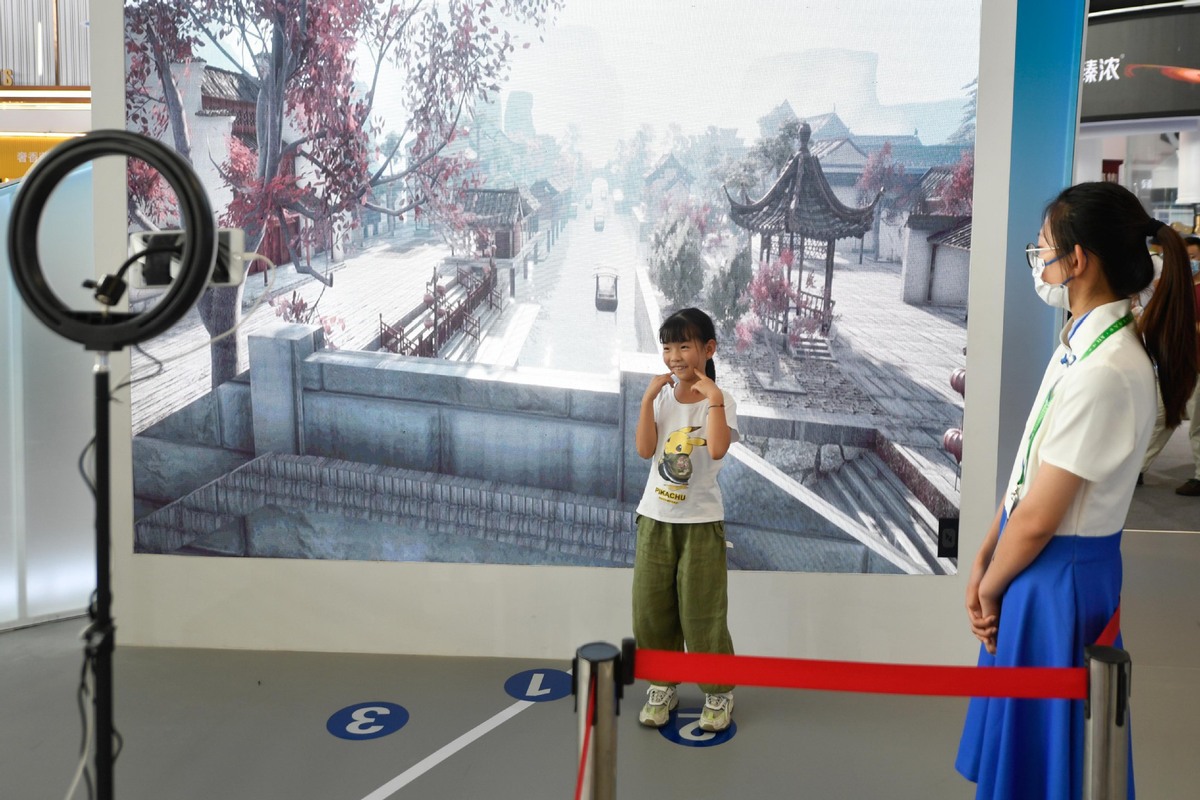
China is willing to work with other countries to make the digital civilization benefit people of all countries and promote the building of a community with a shared future for mankind, President Xi Jinping said in a congratulatory letter to the 2021 World Internet Conference Wuzhen Summit, which opened on Sunday in Wuzhen, Zhejiang province.
Xi emphasized that China is willing to work with other countries to shoulder the historical responsibility of promoting human progress by stimulating digital economy vitality, enhancing digital government efficiency, optimizing the digital social environment, setting up a digital cooperation structure, and building a strong digital security shield.

The 2021 World Internet Conference Wuzhen Summit featuring 20 sub-forums under the theme of "Toward a New Era of Digital Civilization -- Building a Community with a Shared Future in Cyberspace" kicked off in Wuzhen, East China's Zhejiang province, on Sunday.
The sub-forums will contribute insights on data governance, the rule of law on the internet, social responsibilities of tech companies, global COVID-19 response and international communication among other topics of public interest through discussions on new internet technology trends including 5G, artificial intelligence, open-source ecology, internet of the next generation, data and algorithm.

HANGZHOU - The 2021 World Internet Conference Wuzhen Summit gathers people from around the world to share wisdom on building a digital civilization via online and offline events.
The summit, which kicked off on Sunday in Wuzhen, east China's Zhejiang Province, features 20 sub-forums under the theme of "Towards a New Era of Digital Civilization -- Building a Community with a Shared Future in Cyberspace."
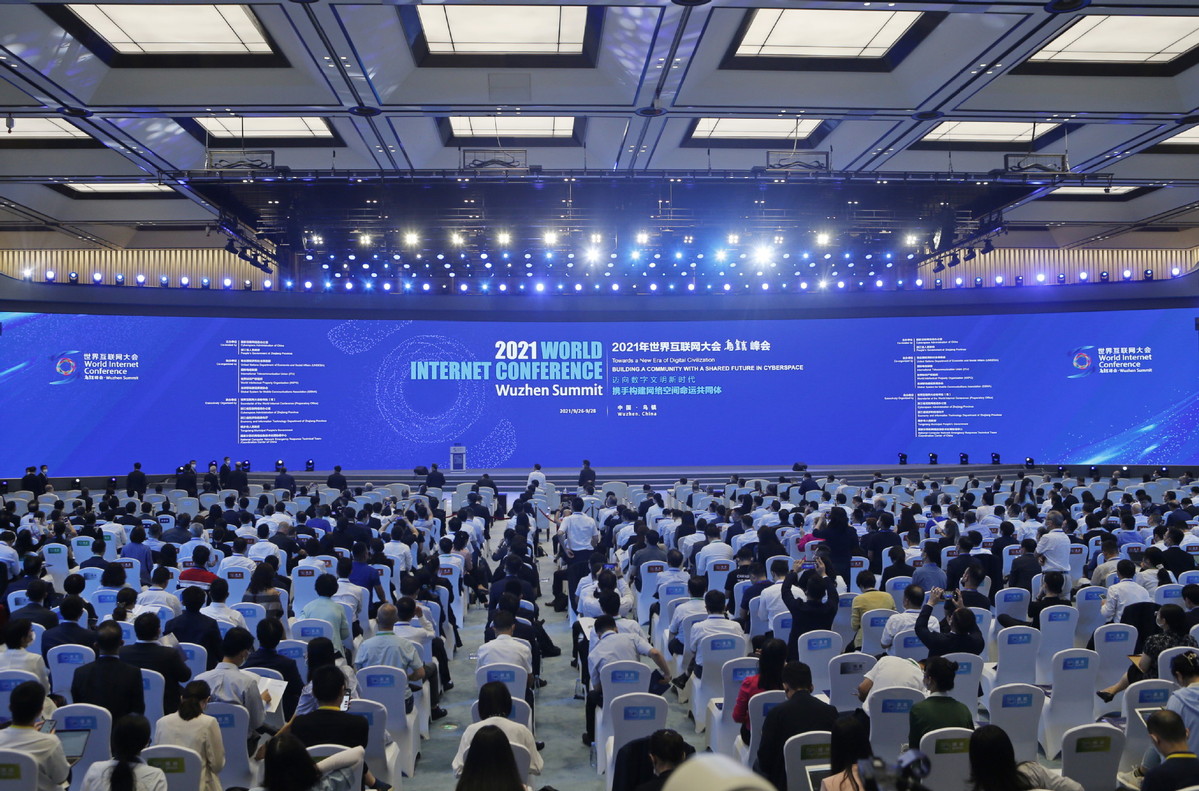
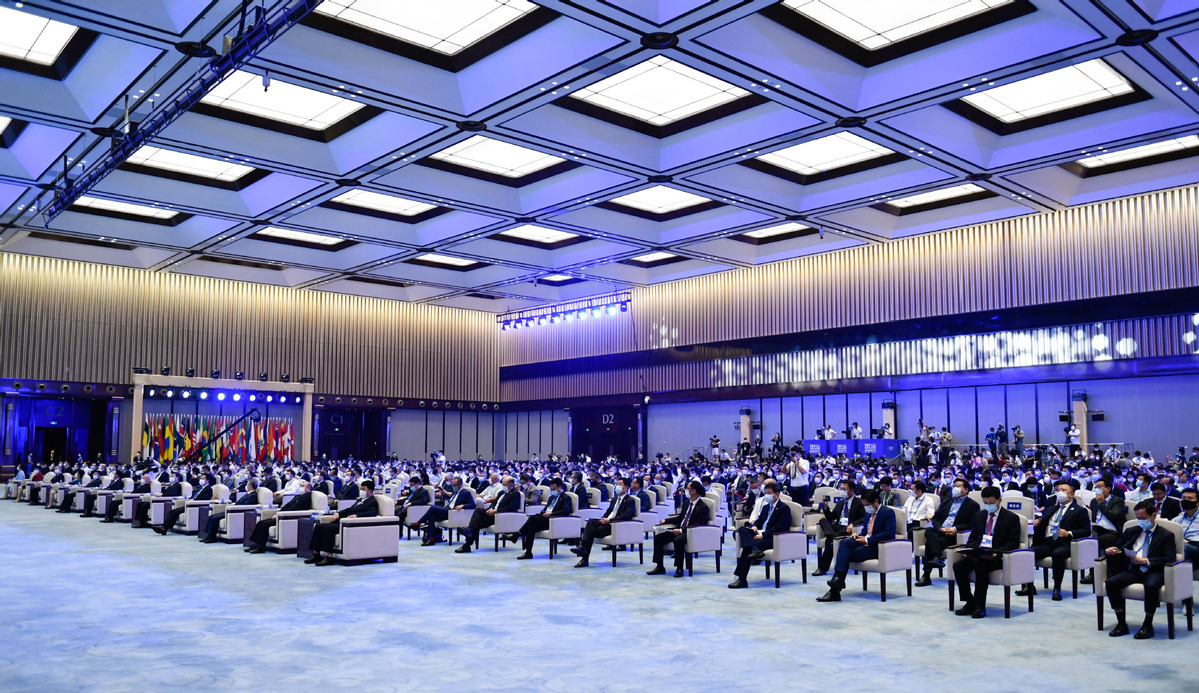

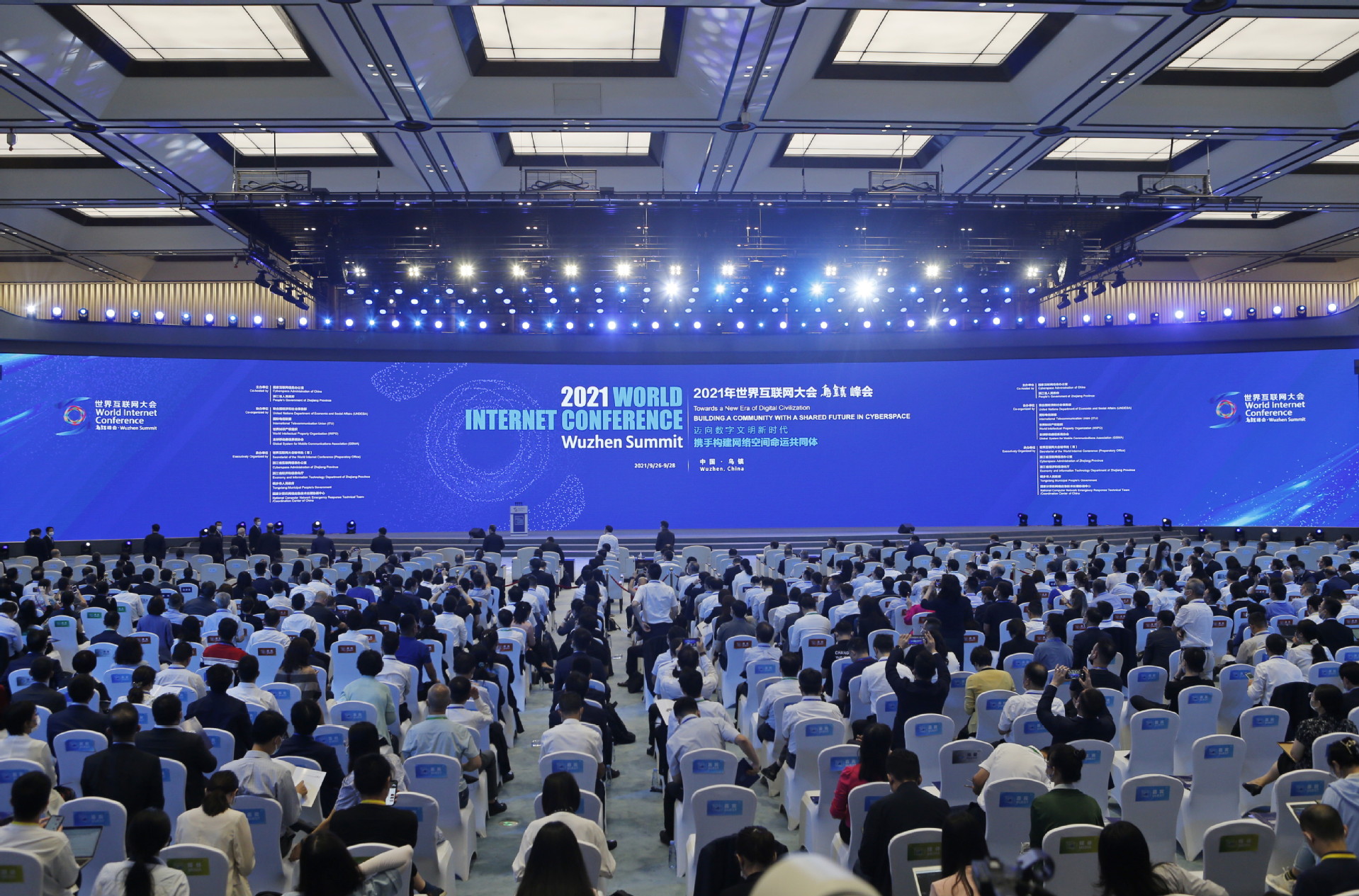
President Xi Jinping on Sunday sent a congratulatory letter to the 2021 World Internet Conference Wuzhen Summit, which opened in Wuzhen, East China's Zhejiang province.
In his letter, Xi noted that digital technology is being fully integrated into all fields and the whole process of economy, politics, culture, society and ecological civilization construction with new ideas, new forms and new models, having extensive and profound impacts on the production and life of humankind.
With the internet reaching nearly every aspect of life, the digital-driven economy has become an indispensable power to stimulate China's future development.
How has China performed in this sector? The numbers have the answer!


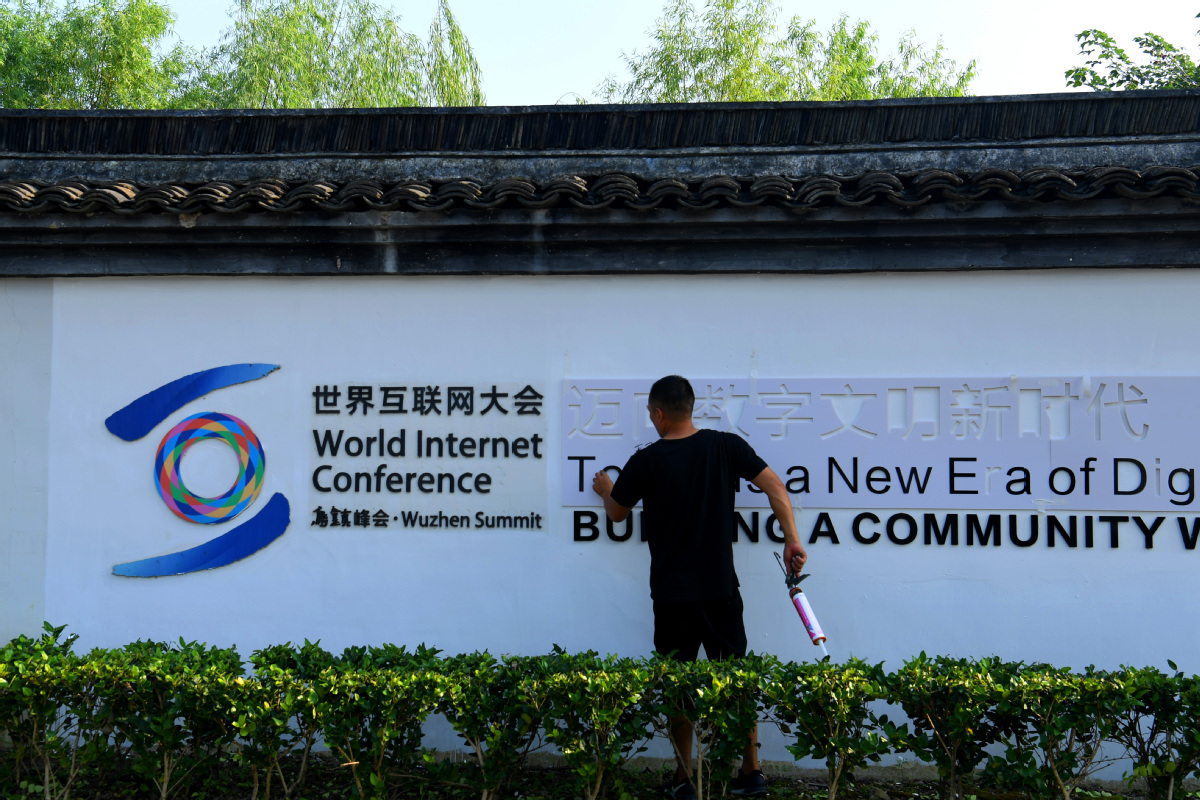
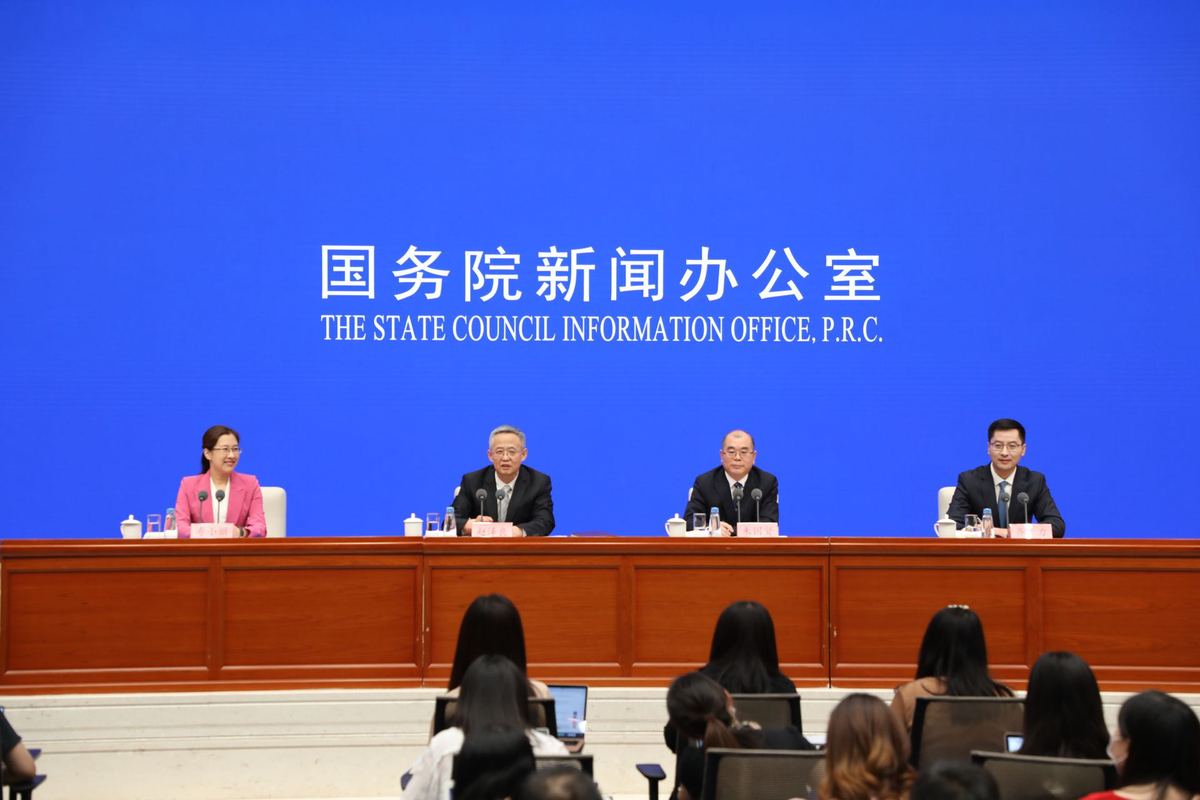
The 2021 World Internet Conference Wuzhen Summit is scheduled to take place from Sept 26 to 28 in Wuzhen, Zhejiang province, with the theme of "Towards a New Era of Digital Civilization – Building a Community with a Shared Future in Cyberspace."
Nearly 2,000 representatives from domestic and foreign governments, international organizations, industry associations, global leading enterprises, universities and research institutes from over 80 countries and regions, will attend the conference both online and offline, said Zhao Zeliang, vice-minister of the Cyberspace Administration of China, during a news conference on Friday in Beijing.
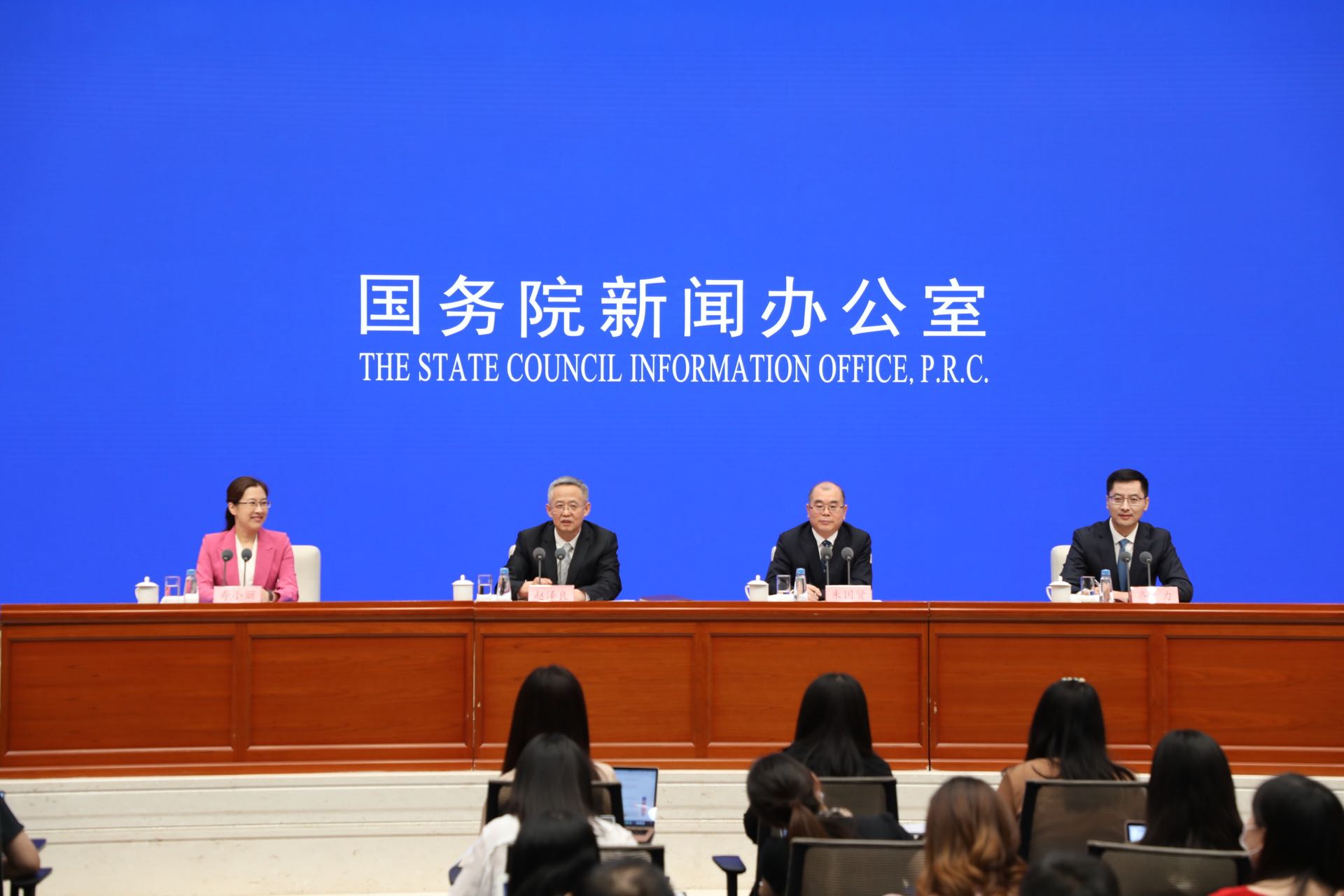
The 2021 World Internet Conference Wuzhen Summit is scheduled to take place from Sept 26 to 28 in Wuzhen, Zhejiang province, said Zhao Zeliang, deputy head of the Cyberspace Administration of China, during a news conference in Beijing on Friday.
Themed as "Towards a New Era of Digital Civilization – Building a Community with a Shared Future in Cyberspace," the Wuzhen Summit will be held both online and offline this year.
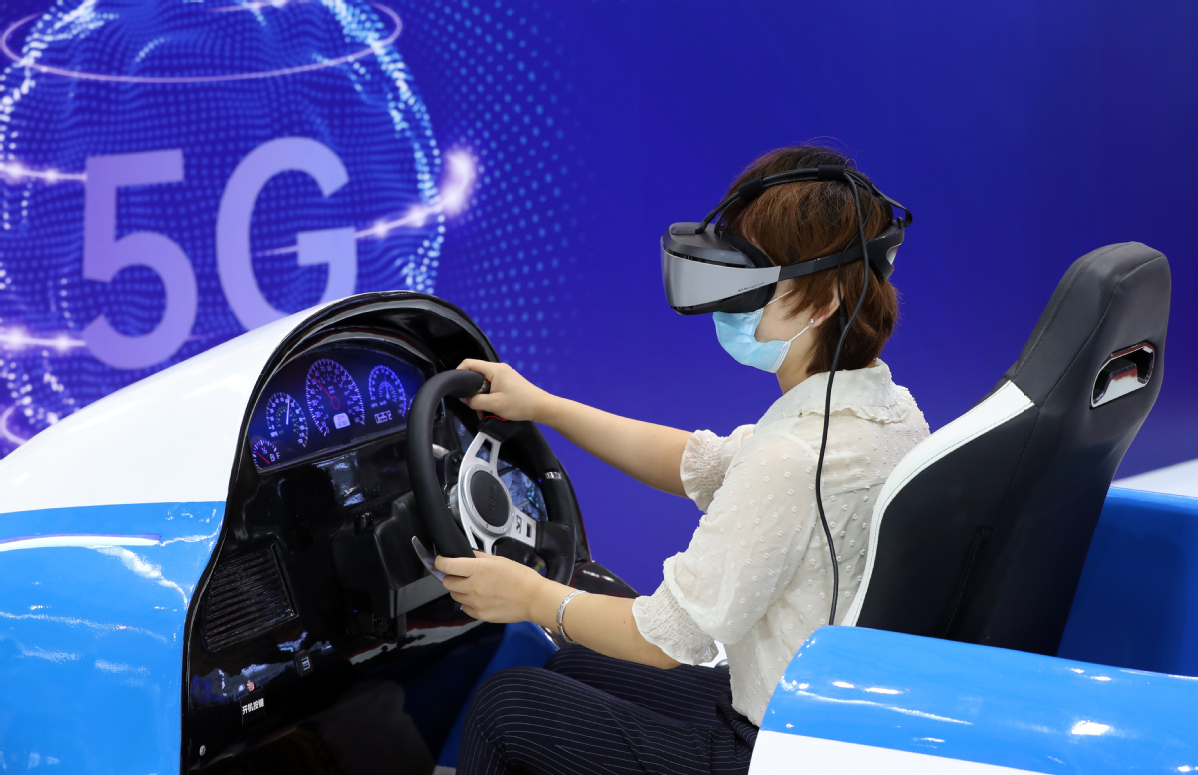
BEIJING -- China has so far built 993,000 5G base stations, covering more than 95 percent of counties and 35 percent of rural townships, the Ministry of Industry and Information Technology said Tuesday.
The number of 5G mobile phone users has exceeded 392 million, the ministry said at the 2021 World 5G Convention that opened Tuesday in Beijing.

China's tighter oversight of the internet sector does not contradict plans to bolster its development. Instead, regulation over the fast-expanding consumer-oriented platform economy will motivate internet companies to pursue next-generation innovation, experts said.
Dang Chongyu, an economist at Founder Securities, said in a research note that anti-monopoly moves go hand in hand with China's support for technological innovation. In the future, tech giants may increase their investment in a new technological revolution spearheaded by artificial intelligence, big data and cloud computing.
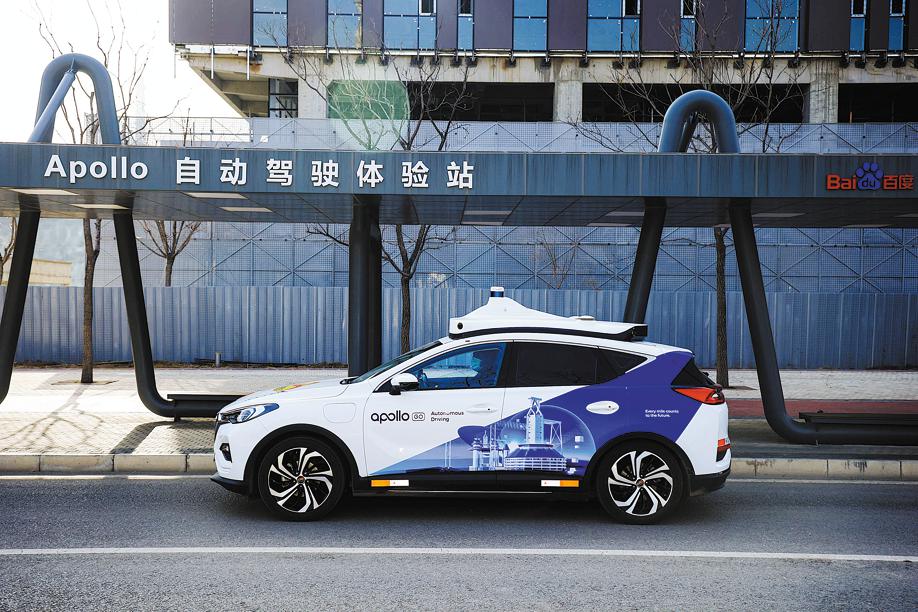
Chinese technology companies are ramping up efforts to launch self-driving taxi services in an attempt to bolster large-scale commercial use of the growing transportation solutions.
Internet search giant Baidu Inc officially opened its robotaxi ride-hailing pilot program to the public in Guangzhou, capital of Guangdong province, in July, marking the largest autonomous driving vehicle-for-hire platform in the city.
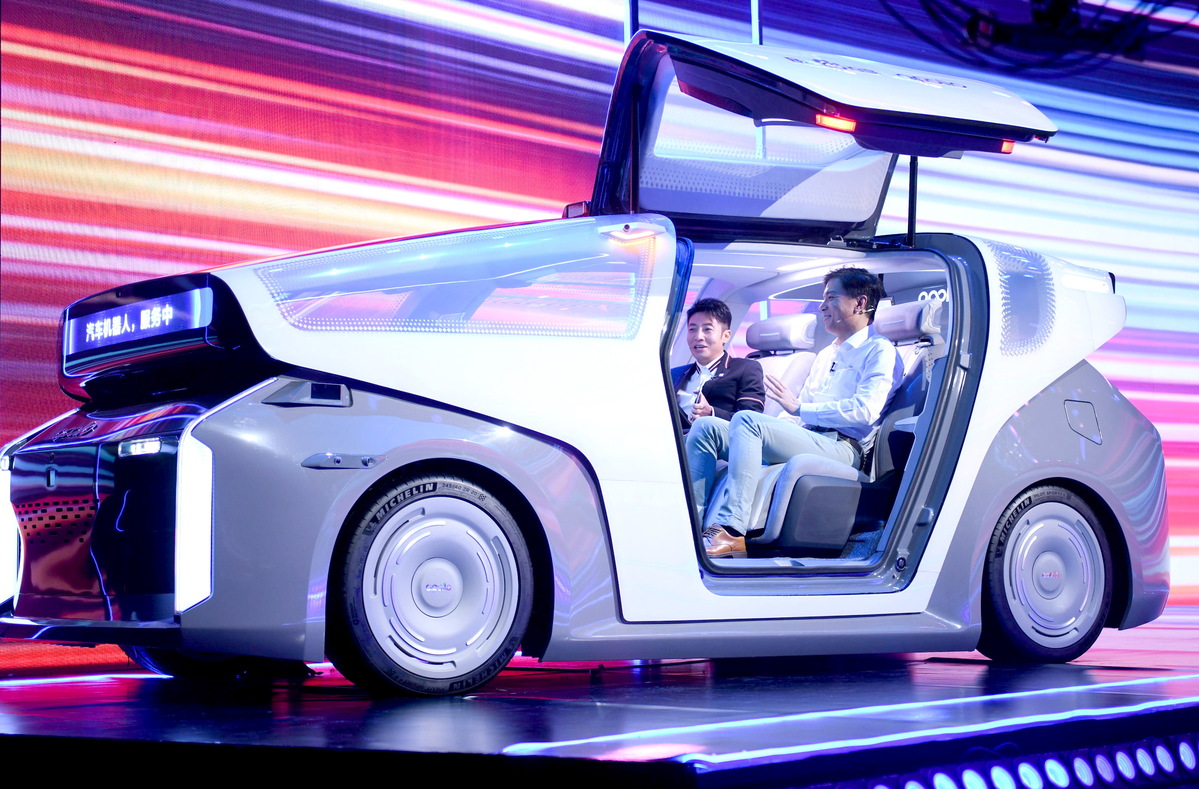
Chinese internet search giant Baidu Inc on Wednesday unveiled its first level 5 self-driving robocar with no steering wheel, and an upgraded autonomous driving service platform named Luobo Kuaipao, in a bid to speed up the process of making the autonomous driving technology commercially viable.
Robin Li, co-founder and CEO of Baidu, outlined the company's vision at the annual Baidu World Conference in Beijing. Cars of the future, Li said, will be robocars. Such robocars will have, among other things, the following features or capabilities: L5 autonomous driving ability; voice and facial recognition capacity, which can analyze the potential needs of users and proactively offer related services; self-learning and continuous self-improvement abilities.
